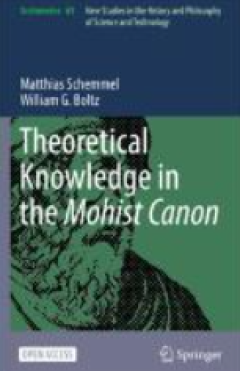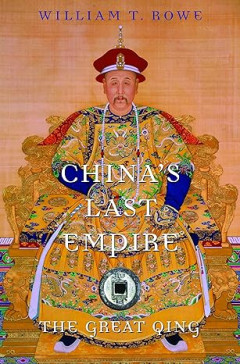Ditapis dengan

E-book Bandits in Print : "The Water Margin" and the Transformations of the C…
The traditional long-form novel, as devel-oped in late Ming China, could be endlessly reshaped and repackaged. Its text could be freely altered. Commentaries could be added to its chapters, whether at their beginnings, at their ends, or even interpo-lated into the text itself, in order to assist less-experienced readers or to provide interpretations. Prefaces could be…
- Edisi
- -
- ISBN/ISSN
- 9781501769214
- Deskripsi Fisik
- 192 hlm
- Judul Seri
- -
- No. Panggil
- 931 GRE b

E-book Theoretical Knowledge in the Mohist Canon
Anyone undertaking a long-term historical study of any particular field of human activity is confronted with the difficulty that the contents and boundaries of that field are inevitably fluid and change over time. The historical study of science is no exception to this. Is it possible to conceptualize science broadly enough to include what has traditionally been considered sci…
- Edisi
- -
- ISBN/ISSN
- 9783031087974
- Deskripsi Fisik
- 215 hlm
- Judul Seri
- -
- No. Panggil
- 931 SCH t

E-book China's Last Empire: The Great Qing
In a brisk revisionist history, William Rowe challenges the standard narrative of Qing China as a decadent, inward-looking state that failed to keep pace with the modern West. The Great Qing was the second major Chinese empire ruled by foreigners. Three strong Manchu emperors worked diligently to secure an alliance with the conquered Ming gentry, though many of their social edicts—especial…
- Edisi
- -
- ISBN/ISSN
- 9780674066243
- Deskripsi Fisik
- 369 halaman
- Judul Seri
- -
- No. Panggil
- 931 ROW c
E-book Dynasties of China
The clay army stood in silent formation, guarding the tomb of the first emperor of China. Alert and ready for battle, they were to protect the emperor from evil spirits and robbers. If a robber did manage to break in, he might not escape in one piece—the clay army surrounded the tomb. Over seven hundred thousand workers built the first emperor’s tomb and created his army of clay. And it too…
- Edisi
- -
- ISBN/ISSN
- -
- Deskripsi Fisik
- 90 hlm
- Judul Seri
- -
- No. Panggil
- 931 COR d
 Karya Umum
Karya Umum  Filsafat
Filsafat  Agama
Agama  Ilmu-ilmu Sosial
Ilmu-ilmu Sosial  Bahasa
Bahasa  Ilmu-ilmu Murni
Ilmu-ilmu Murni  Ilmu-ilmu Terapan
Ilmu-ilmu Terapan  Kesenian, Hiburan, dan Olahraga
Kesenian, Hiburan, dan Olahraga  Kesusastraan
Kesusastraan  Geografi dan Sejarah
Geografi dan Sejarah